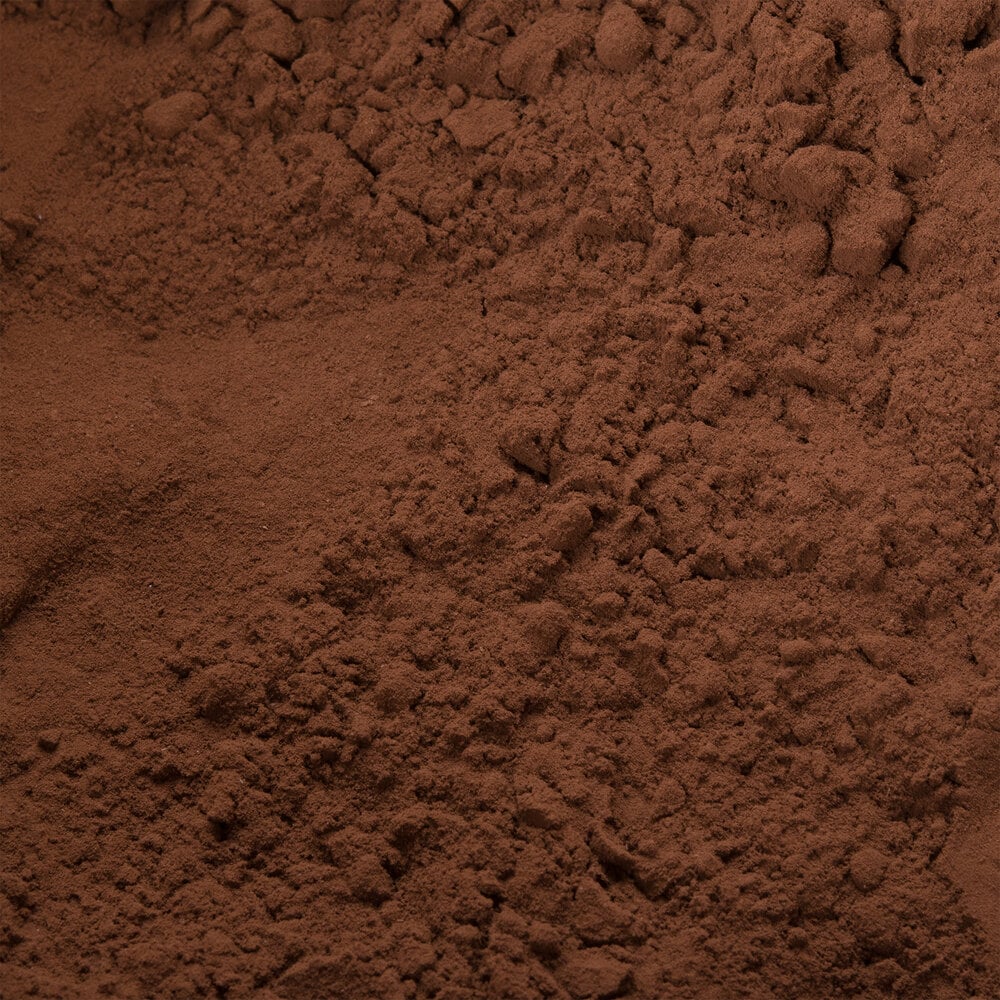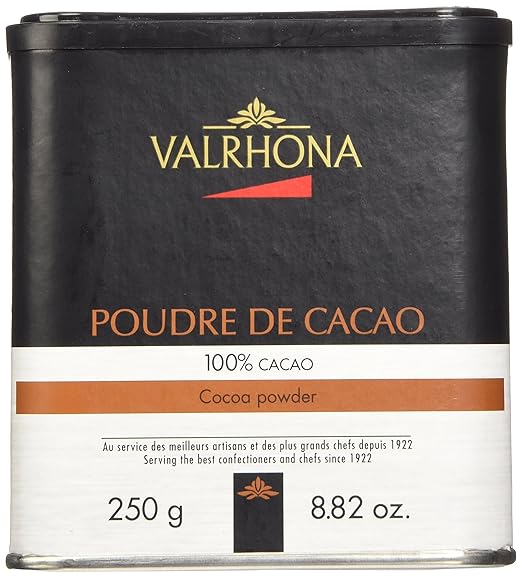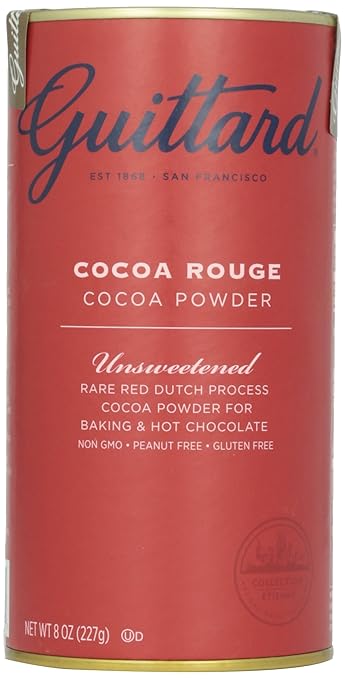We all love chocolate and we each have our favorites when it comes to flavor.
I am a total chocaholic. Personally I would eat chocolate everyday if I could. lol
We all see recipes everywhere for cakes. And not everybody in the world is a chef and knows the difference between chocolates. Most of the time a regular person will see a recipe and go to the supermarket to buy the first cocoa they can find. Some people don’t even notice or think much about a recipe that is asking for dutch process or natural cocoa. All they see is unsweetened cocoa and that’s the one they will invariably go for.
I myself didn’t know much about the differences in chocolate until I started baking. There’s a world of information out there all about just chocolate. I’m no expert on just chocolate but I do know my basics on it and I will share one important fact.
When we see a recipe for a chocolate cake, the most important part it is the type of cocoa you should use in it. You will find mostly 2 types of cocoa powder. One is called “Natural” and the other one will be “Dutch Processed”. Even though these are the most common ones, there are other types or combos out there that you guys can explore. In the meantime I will explain the difference between these common two.
Natural cocoa is solid, unsweetened chocolate that’s had most of its fat removed before being ground into powder. This cocoa powder is typically sold unsweetened, and although it may taste a bit bitter or harsh on its own, it can work well in baked goods that are meant specifically for this type of chocolate. This type of cocoa is consider to give a more drier outcome.
Dutch-process cocoa is natural cocoa that’s been treated with an alkalizing agent to lower its acidity. This allows more of its pure chocolate flavor to shine through. The alkali helps neutralize the natural acidity of the powder. The process gives the cocoa powder a more mellow, smooth and less bitter flavor. This type of cocoa tends to give a more fudgier, moist taste.
There’s a lot of science behind which one you can use when it comes to baking a cake. Natural Cocoa and Dutch cocoa are not interchangeable in all recipes. I will simplify by saying this: If a cake recipe only calls for baking soda, it likely uses acidic natural cocoa. If it only uses baking powder, it’ll probably ask for Dutch process cocoa instead. If a recipe calls for both, baking powder and baking soda, you’ll need to follow the recipe to get the proper balance of acid and alkaline. Recipes that use baking powder will likely rise anyways but not as well. So basically it’s best to stick to the cocoa that a recipe calls for. I personally tend to use dutch cocoa if the recipe doesn’t say which kind of chocolate to use.
Using the wrong cocoa in your recipe not only can make your cake go flat, but it can also make the flavor of your cake change drastically and you can end up with a cake with a strange or soapy taste. Keep in mind that some recipes have other acidic additions that come into play like buttermilk, fruits, sour cream, vinegars and other acids.
I would suggest that when you try a recipe for chocolate cake, make sure to see if there are any specifications for what type of chocolate you should use. If the cake is moist and you like the texture but you don’t like the flavor of it, then try another brand of cocoa. There are many brands out there and everyone has a different idea of what good chocolate should taste like. It’s a very personal opinion. Some people like a stronger flavor while others will prefer a subtle one. Some people like milk chocolate and others like dark and bittersweet. It’s all out there for grabs!
There are many options when it comes to chocolate. Check for Black Cocoa, Double Cocoa, Triple Cocoa and others. Some are made with a combination of natural and dutch process chocolates, others are known as heavily-dutch and have a stronger chocolate flavor. Believe me, I could go on until my last name changes to Hershey, but then this blog would be very long. At least you get an idea of what is out there and do more research on the subject. Keep in mind also that cocoa powders have different flavors and some of them contain more fats or starches and this will give you either a more moist cake or drier cake. All of these things are important if you are still trying to find your perfect cacao for your cakes.
 The whole point behind this blog is to let you guys know that if you have tested a recipe for a chocolate cake and maybe the crumb of the cake was great or it was perfectly moist, but the flavor was a little off, then maybe you need to change your cocoa and test it again. If you are not happy with the crumb of the cake but the recipe has great reviews, maybe you need to try another cocoa. The wrong cocoa can change the crumb and moisture of a cake.
The whole point behind this blog is to let you guys know that if you have tested a recipe for a chocolate cake and maybe the crumb of the cake was great or it was perfectly moist, but the flavor was a little off, then maybe you need to change your cocoa and test it again. If you are not happy with the crumb of the cake but the recipe has great reviews, maybe you need to try another cocoa. The wrong cocoa can change the crumb and moisture of a cake.
 Some of the most well known companies are Vahlrona, Callebaut, Guittard and there are others. Hershey’s and Ghirardelli are the most easily found in supermarkets. In a pinch I have used Hershey’s Special Dark (this one combines natural and dutch chocolate in it). Keep in mind that the other Hershey’s sold is natural cacao so if you have used it in a cake recipe that calls for dutch cacao, then the outcome might not has been the expected one. On the least expensive ones, the Hershey’s Special Dark has a dark (duh) color and pretty decent flavor and I like it a lot better than the original one at least on the cake recipes I have used it in. I will add that I have used the Hershey’s Natural Original and liked the taste better than the Hershey’s Special for the chocolate buttercream recipe I have in my website. Like I said, testing will be your best friend until you find your favorite one.
Some of the most well known companies are Vahlrona, Callebaut, Guittard and there are others. Hershey’s and Ghirardelli are the most easily found in supermarkets. In a pinch I have used Hershey’s Special Dark (this one combines natural and dutch chocolate in it). Keep in mind that the other Hershey’s sold is natural cacao so if you have used it in a cake recipe that calls for dutch cacao, then the outcome might not has been the expected one. On the least expensive ones, the Hershey’s Special Dark has a dark (duh) color and pretty decent flavor and I like it a lot better than the original one at least on the cake recipes I have used it in. I will add that I have used the Hershey’s Natural Original and liked the taste better than the Hershey’s Special for the chocolate buttercream recipe I have in my website. Like I said, testing will be your best friend until you find your favorite one.
If you happen to be a chocolate snob, then go for the higher quality one. Keep in mind that most of the times you might have to order those online and they have a higher price. For those who are chocolate lovers, sometimes the flavor is worth the extras. My job is not to sell you a specific product but to let you know that there are options. Experiment! I was sent by a super awesome lady overseas, a cocoa call Droste and it was super delicious. Worth checking it out!
I will add that if you get one cocoa that didn’t work for a recipe, this doesn’t mean it’s a bad one. It might just not be the right recipe for that specific cocoa. Test it with other recipes to see how flavor changes and what works best for your tastebuds. Some companies might even have recipes that work well with their own products and that might be worth a try.
We all grew up with what we think good chocolate should taste like. From country to country, or even state to state, you will find there’s a huge difference on what people prefer. At the end of the day it’s your own personal search. Hope you find your favorite cocoa. To paraphrase Agent Mulder from the X Files, “the cocoa truth is out there!”
I hope you enjoy this Blog, until next one.. ta ta!
Edna




Muchas gracias por la informacion.
My pleasure!
Thanks for the info..